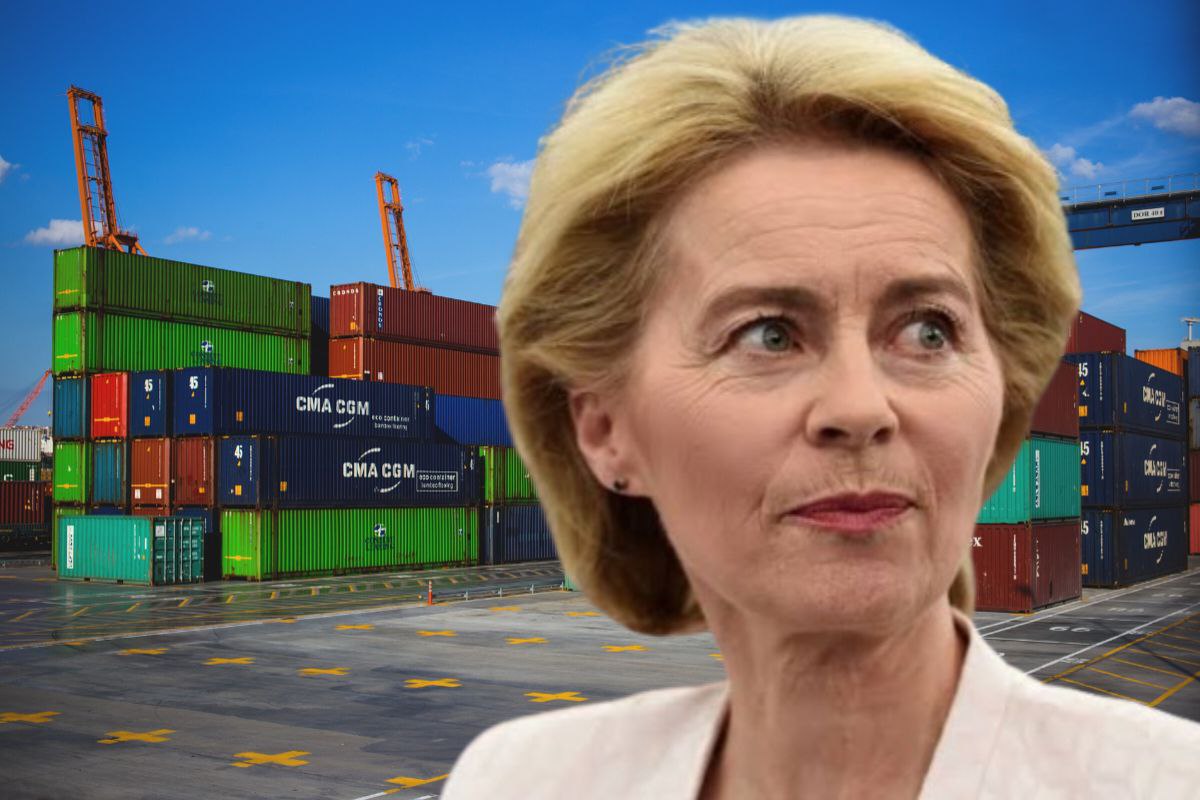Tariff Trouble:As the July 9 deadline approaches, the European Union and the United States are on the brink of a major trade clash. With Donald Trump threatening 50% tariffs on EU imports and Brussels preparing a $112 billion retaliation list, global trade could be reshaped overnight. Behind the scenes, corporate giants like BMW, Mercedes, and Sanofi are scrambling to shield themselves by investing in the US. From luxury cars to French wines and medical devices, this standoff could hit consumers hard. Here’s an in-depth look at what’s happening and what’s at stake.
Tariff Trouble: Trump Threatens EU with 50% Duties as July 9 Deadline Looms
As the July 9 deadline approaches, trade tensions between the United States and the European Union have reached a critical stage. The possibility of a sweeping tariff war threatens to reshape global trade dynamics, strain diplomatic relations, and directly impact industries and consumers on both sides of the Atlantic.
The European Union has sent a clear message — it prefers diplomacy but is preparing for all outcomes. Ongoing negotiations between both parties continue, with European Commission Vice President Maroš Šefčovič currently in Washington, seeking a compromise with US officials. In his words, “We are ready for a deal. We want a negotiated solution.” However, he also emphasized that the EU is preparing for the possibility that no satisfactory agreement is reached. As a result, Brussels has put forward a rebalancing list and confirmed that “all instruments are on the table.”
This trade dispute centers around former President Donald Trump’s threats to impose 50% tariffs on nearly all EU imports to the US. If implemented, this move could disrupt a significant portion of the $700+ billion annual transatlantic trade relationship. In retaliation, the European Commission has proposed tariffs on up to $95 billion to $112 billion worth of American exports.
However, under pressure from member states and powerful European industries, that figure could be reduced by as much as $70 billion or $88.9 billion — potentially weakening the EU’s negotiating leverage.
Behind the scenes, Europe’s corporate titans aren’t waiting for Brussels to act. Several giants are actively engaging with Washington to soften the blow or seek exemptions. German automakers BMW and Mercedes-Benz, for instance, are making strategic moves to protect their US market share.
BMW recently announced new investments in American manufacturing facilities. Meanwhile, Mercedes is relocating production of its popular GLC SUV to its Alabama plant, reinforcing its commitment to US operations.
On the pharmaceutical front, French drugmaker Sanofi is also stepping up its US presence. The company has pledged billions for drug research and development projects in America, hoping to shield its operations from retaliatory duties and signal goodwill to US policymakers.
The stakes are immense. The US and China together account for over 80% of the EU’s exports, and a trade war with either power could deal serious blows to the European economy. Small producers and major global brands are urging EU leaders to remove certain American products — such as spirits — from the retaliation list, citing the potential financial devastation for industries like French wines and Irish whiskey. Without a resolution, consumers in both regions may soon face the consequences.
If negotiations collapse, European luxury car prices — particularly brands like BMW, Mercedes, and Volvo — could surge due to increased tariffs. The cost of imported medical devices, such as X-ray machines and diagnostic tools, may also spike. Popular European products, such as French wine or Irish whiskey, may either vanish from US shelves or be sold at significantly higher prices.
In a sign of possible compromise, the EU is indicating it might accept a universal 10% tariff on all exports if the US reduces its import duties on crucial sectors such as pharmaceuticals, semiconductors, and aircraft.
However, the rhetoric from Donald Trump has not helped calm matters. In his typically blunt tone, Trump labeled the European Union “nastier than China” in the context of trade, suggesting that the EU has been tougher to negotiate with. “In all parts of the European Union, they were the toughest of all.
They were nasty… And I see that with trade, too,” Trump said. “We’ve just started with them. Oh, they’ll come down a lot. You watch. We have all the cards. They treated us very unfairly.”
As the deadline looms, all eyes are on Washington and Brussels. Will cooler heads prevail, or is the global economy heading toward another damaging trade war?
Disclaimer:
This article is based on current geopolitical and economic developments as of July 2025. Trade negotiations are ongoing, and outcomes may shift rapidly. Readers are advised to follow official updates for the latest information.

